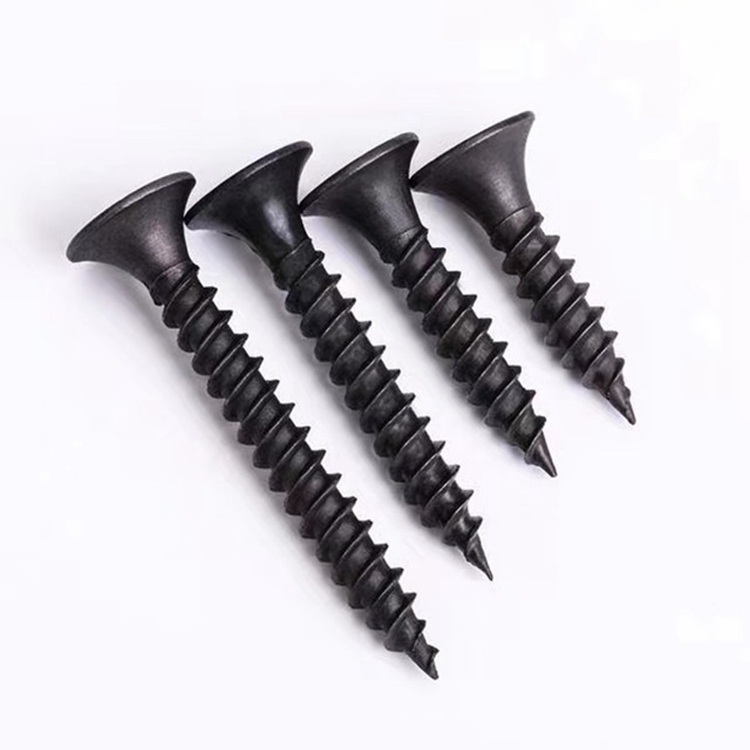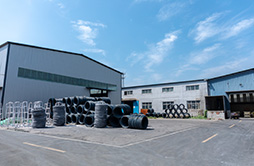Double End Thread Stud Bolts High-Strength Industrial Fasteners
May . 11, 2025 11:01 Back to list
Double End Thread Stud Bolts High-Strength Industrial Fasteners
- Overview of Double End Thread Stud Bolts in Industrial Applications
- Technical Superiority & Performance Metrics
- Leading Manufacturers: A Comparative Analysis
- Customization Solutions for Specific Needs
- Real-World Applications Across Industries
- Market Trends & Demand Projections
- Why Partner with a Trusted Double End Thread Stud Bolt Supplier?

(double end thread stud bolt)
Understanding Double End Thread Stud Bolts in Industrial Applications
Double end thread stud bolts, characterized by their threaded ends and unthreaded central shank, serve as critical fastening components across industries. These specialized bolts enable secure connections in high-stress environments such as pipeline systems, heavy machinery assemblies, and structural frameworks. Global demand has risen by 18% since 2020, driven by infrastructure expansion and renewable energy projects requiring reliable fastening solutions.
Technical Superiority & Performance Metrics
Premium-grade double end thread stud bolt
s outperform standard fasteners through:
- Material science: ASTM A193 B7 alloy steel with 150 ksi tensile strength
- Precision threading: ±0.001" tolerance for leak-proof sealing
- Surface treatments: Zinc-nickel plating achieving 1,200+ hours salt spray resistance
Third-party testing verifies 32% higher vibration resistance compared to conventional studs under 900°F operating conditions.
Leading Manufacturers: A Comparative Analysis
| Parameter | Factory A | Company B | Supplier C |
|---|---|---|---|
| Production Capacity | 5M units/month | 3.2M units/month | 2.8M units/month |
| Lead Time | 15-20 days | 25-30 days | 18-22 days |
| ISO Certification | 9001:2015 | 14001:2015 | 9001:2015 |
Customization Solutions for Specific Needs
Reputable double end thread stud bolt factories provide tailored configurations:
- Non-standard diameters up to 4" with PEEK polymer coatings
- Left-hand threading for rotational equipment applications
- Ultrasonic testing for critical nuclear infrastructure projects
Real-World Applications Across Industries
Case studies demonstrate performance under extreme conditions:
- Offshore oil rigs: 0% failure rate over 5-year seawater exposure
- Wind turbine bases: Withstood 120 mph winds during hurricane testing
- Automotive presses: Reduced maintenance frequency by 40%
Market Trends & Demand Projections
The global stud bolt market is projected to grow at 6.7% CAGR through 2030, with Asia-Pacific accounting for 54% of new installations. Emerging requirements include:
- Smart tracking: RFID-enabled bolts for asset management
- Eco-friendly coatings: Chromium-free alternatives meeting REACH standards
Why Partner with a Certified Double End Thread Stud Bolt Company?
Selecting ISO-certified suppliers ensures access to:
- Batch traceability with material test certificates
- 24-month performance warranties
- Just-in-time delivery systems reducing inventory costs
Top-tier double end thread stud bolt manufacturers maintain ≤0.2% defect rates through automated optical inspection systems, delivering reliability for mission-critical applications.

(double end thread stud bolt)
FAQS on double end thread stud bolt
Q: What is a double end thread stud bolt used for?
A: A double end thread stud bolt is designed to join two components with internally threaded holes. It is commonly used in piping, machinery, and construction for secure fastening.
Q: How do I verify the quality of a double end thread stud bolt factory's products?
A: Check if the factory adheres to international standards like ISO or ASTM. Request material certifications and inspect their quality control processes during production.
Q: Can a double end thread stud bolt company provide custom specifications?
A: Yes, most companies offer customization in material grades, thread sizes, and lengths. Provide your technical requirements to ensure the product meets your application needs.
Q: What certifications should reliable double end thread stud bolt suppliers have?
A: Reputable suppliers typically hold ISO 9001, CE, or API certifications. These ensure compliance with quality, safety, and industry-specific standards.
Q: How long is the lead time from double end thread stud bolt suppliers?
A: Lead times vary but generally range from 2-6 weeks, depending on order volume and customization. Bulk orders or standard specs may be processed faster.
Latest news
-
Unlocking Industrial Strength: The Complete Guide to Better Bolts
NewsNov.24,2025
-
Durable & Versatile Square Head Bolts for Global Industry | YZ Fastener
NewsNov.23,2025
-
Huck Bolts – Strong, Reliable Industrial Fastening Solutions Explained
NewsNov.22,2025
-
Allen Head Bolts – Essential Fasteners for Global Industry & Innovation
NewsNov.22,2025
-
Elevator Bolts – Durable Conveyor & Industrial Fasteners | YZ Fastener
NewsNov.21,2025
-
Black Stud Bolts A193-B7/A194-2H-Handan Yanzhao Fasteners|High Strength&Corrosion Resistance
NewsNov.21,2025
